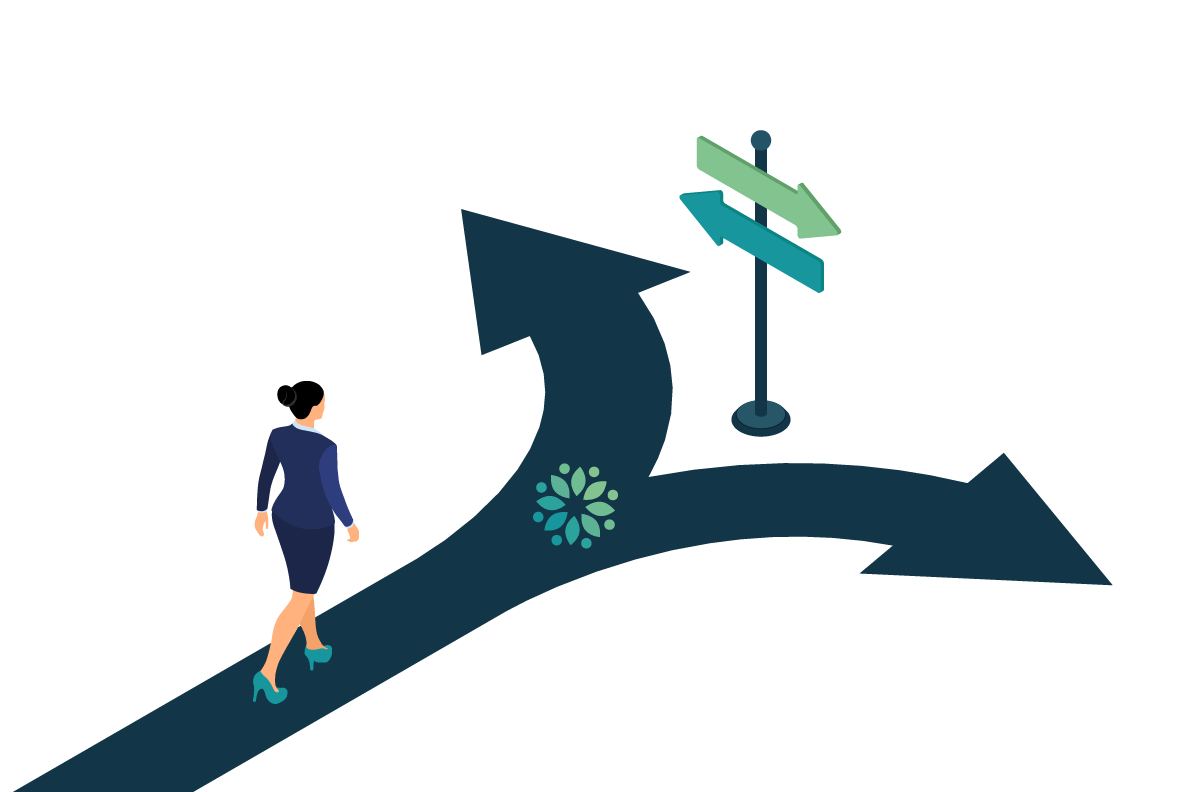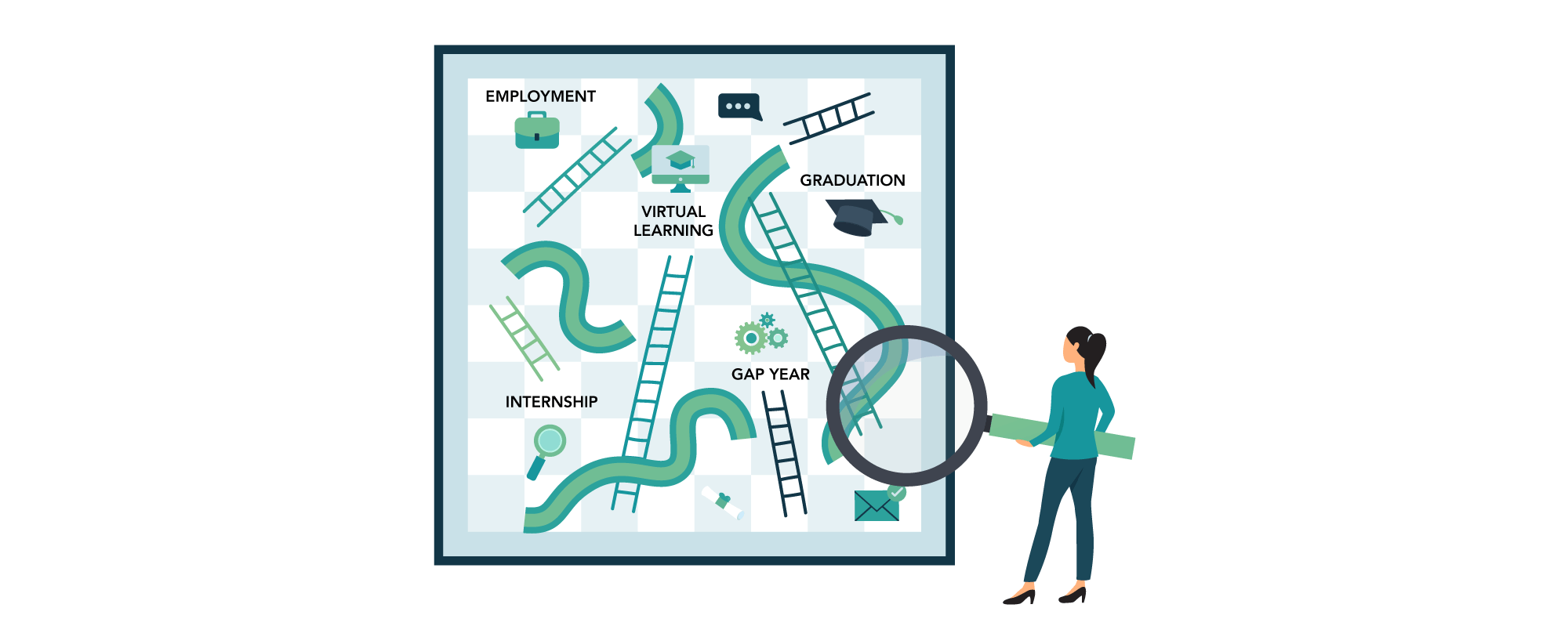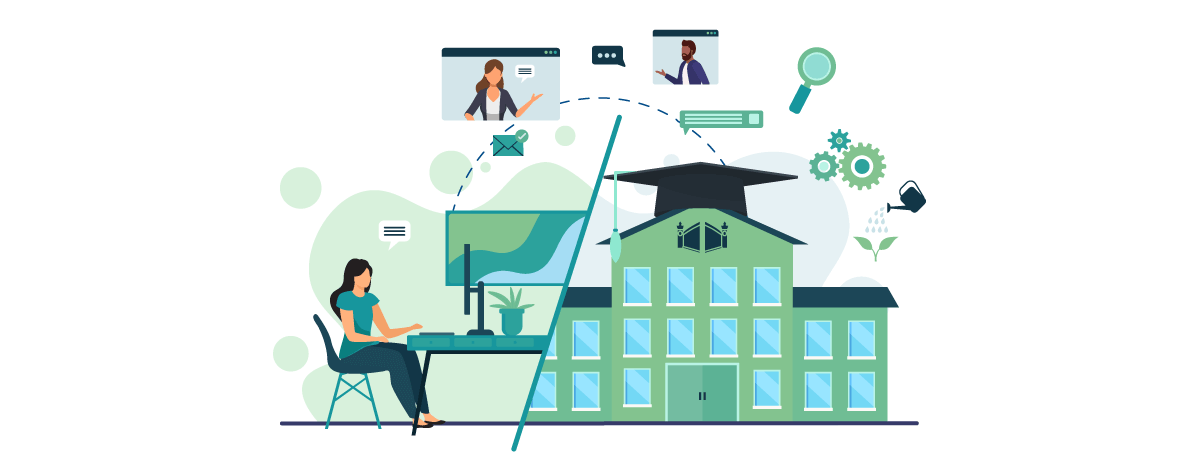Enrollment & Admissions
This Fall, Students Call The Shots
University students across the country are asking themselves the same question: To go or not to go? After a summer […]
Enrollment & Admissions
University students across the country are asking themselves the same question: To go or not to go? After a summer […]

After a summer like no other, it’s finally back-to-school season. Universities have announced their widely varied fall plans, and millions of students like myself are facing an important decision. In the meantime, the endless stream of news updates continues to keep us on our toes. Earlier in July, the now-revoked ICE mandate threatened the immigration status of international students, causing ripples of global panic. As the semester gets underway, universities still continue to alter their previously announced plans as the public health situation evolves unpredictably.
The decision students face regarding their fall plans feels to me like a twisted version of a “Choose Your Own Adventure” book — Global Pandemic Edition. Holding our breath, we’re left to choose our own path from a daunting menu of options. Can I return to my institution, Georgetown University, for hybrid learning? Is entirely virtual learning sustainable for me? What would a personal leave of absence even look like?

In a way, the questions we’re asking are not new. They are versions of the core question a student asks when approaching higher education: what can I do to ensure I make the most of my experience? How can I make sure I get the most value?
Since that education has shifted so dramatically this spring, we students have been watching Covid-19 define the elements of the journey for us. However, it’s students’ needs that will be in the driver seat of the change that determines how schools design the future of higher education. This means, in essence, my classmates and I have a tremendous opportunity to help shape higher ed for generations to come. We must decide how we take learning into our own hands.
Whether a student is low-income, international, first-generation, a person of color, or none of the above, the consequences of Covid-19 are disturbingly varied. For an international student like myself, public health considerations are inevitably tied to having a sparse family network and limited access to health insurance in the U.S.
On the flip side, if I were to stay home in South Korea, I would have to consider how distance learning in a different time zone would affect my mental and physical health. School would be almost entirely asynchronous for me, eliminating any opportunities to participate in live discussions or hear the real time quips and laughter that truly complete the classroom experience.
Each and every student has to consider how their unique circumstance will shape the feasibility of their continued learning. Tuition concerns, confusing immigration policies, housing insecurity, and so much more—talk about premature adulting.
Across the board, students today will be universally bound by an indelible mark that Covid-19 will leave on our educational experiences. Even in my own efforts to be rational in my decision making, I can’t help but get emotional. The intangible value of college that I’ve been reflecting on comes flooding back, and the importance of extracurricular experiences and community in what I call college is impossible to ignore. After hours of contemplation, the arrows finally started pointing to a path that made the most sense for me.
Covid-19 continues to surprise me, and I continue to surprise myself. The path I’ve chosen to take this year ahead is a leave of absence.
Moving past the disappointment and accepting that I’d be taking a detour from my much-anticipated senior year, I’ve now actually begun to feel excitement. There is a sense of freedom that comes with recognizing that this is possibly the first year of my entire life that is a true blank slate. No carved out path to follow, no pre-established convention to adhere to, and no “right” way of navigating my time. Instead of a syllabus and a grading rubric, I have a reading list and my own personal goals.
I want to volunteer and engage in meaningful work experience. I want to spend time with my family, whom I only get to see once or twice a year. I want to learn more directly about Korean culture, after having lived abroad for the past 17 years. I want to read without being told what to read.

Even though my return to Georgetown feels much further now than I could have ever expected, the significance of my three years has never felt so immediate. The countless emails I’ve received from my university mentors this summer have made way for crucial conversations that have monumentally reframed my thinking. Understanding my desire to dive into reading, my professors have spoiled me with book recommendations, sending me titles of their favorite novels, poems, and academic literature. And if I ever exhaust my reading appetite, I know I can look to the thousands of Georgetown alumni scattered across the globe for the volunteering and experiential learning opportunities that I seek.
As I reflect on these opportunities at my fingertips for my gap year ahead, my leave of absence honestly feels less like a departure from college than an extension of its value. The network, resources, and connections I have as a Hoya will always follow me, regardless of my physical presence on campus, and for that I am grateful. I can bid Healy Hall farewell for the year, but I know that I’ll be keeping Georgetown close.